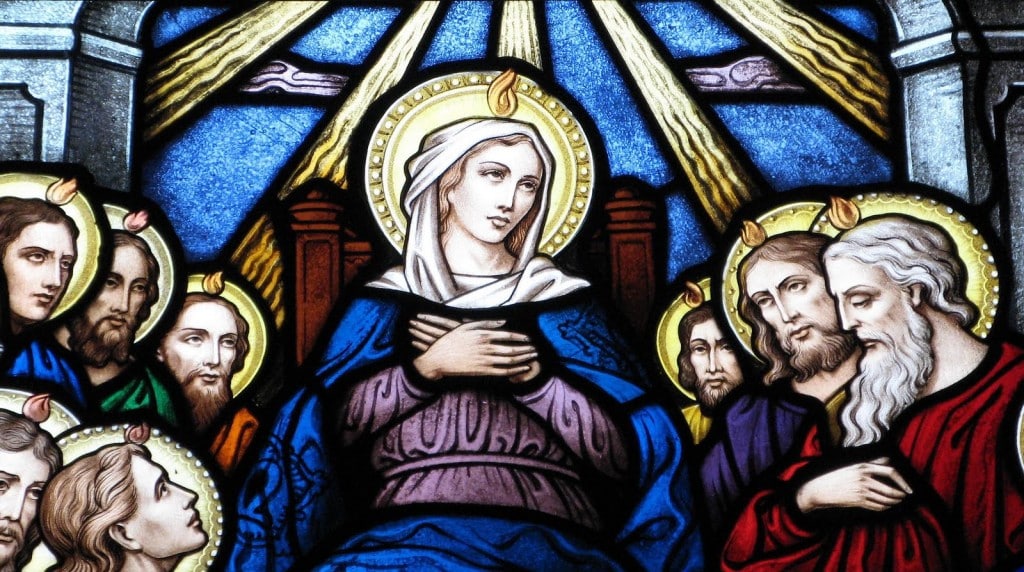Did the Blessed Virgin Mary keep Lent? Did the Apostles keep Lent?
Did the Blessed Virgin Mary keep Lent? Did the Apostles keep Lent? How far back does Lent go in Catholic tradition?
One of the earliest references to Lent is found in Pope Leo the Great’s (d. 461) sermons from the fifth century. Pope Saint Leo the Great maintained that the forty days of Lent were instituted by the Apostles:
“ut apostolica institutio quadraginta dierum jejuniis impleatur.”
(Patrologia Latina 54, 633)
“That the Apostolic institution of forty days might be fulfilled by fasting.”
St. Jerome (d. 420) and the church historian Socrates (d. 433) also assumed the apostolic institution of the forty days of fasting before the celebration of Christ’s resurrection.
Nowadays, modern historians cast doubt on the practice of Lent in the first century.
The writings of Eusebius are often cited as proof that the early Church was entirely ignorant of what we call Lent. Eusebius, in his Church History (5, 24), relates an epistle of Saint Irenaeus to Pope Saint Victor (reigned from A.D. 189 to 199) in connection with the Paschal (Easter) controversy of the second century. Not only was there confusion about the date of the Easter (either Nisan [name of Syrian month] 14th or the Sunday after Nisah the 14th), but Christians also debated as to whether the preceding fast should be for one day, two days, or forty hours. It seems that neither the Roman Christians nor the Eastern Christians knew of a “forty day” fast before Pascha.
Nevertheless, by the fourth century, the “forty days” of fasting prior to Pascha seem to be universally observed. St. Athanasius‘ Paschal letter for A.D. 331 reports that all the Christian of Alexandria, Egypt keep a “forty day” fast prior to Pascha/Easter. In his Paschal letter for A.D. 339, he mentions how the “forty day” fast prior to Pascha/Easter is universally kept by all the Churches: “to the end that while all the world is fasting, we who are in Egypt should not become a laughing-stock as the only people who do not fast but take our pleasure in those days.”
The fifth canon of the Council of Nicea in A.D. 325 also confirms that “forty days” are kept as days of penance prior to Easter.
My take on it all:
I’ll lay my cards on the table. I think the Blessed Virgin Mary and the Apostles did keep the forty days of Lent just as Saint Jerome and Pope Saint Leo claimed. “But Taylor, what about that damning quote from Eusebius?!”
First, Saint Jerome and Saint Leo would have know about that quote. Eusebius’ account of history was well known. It didn’t stop them from claiming that the earliest Christians keep a forty day fast prior to Pascha/Easter.
The Apostles instituted a strict fast to be kept for “the day on which the bridegroom was taken away” (Lk 5:35) – the day that we call Good Friday. The “forty hour” tradition mentioned by Irenaeus likely refers to the estimated time that Christ was in the tomb (3pm Friday till sometime before light on Sunday). Consequently, the apostolic fast began on what we call Good Friday and ended on Easter. Eusebius is here speaking about the “strict fast” prior to Easter – not the 40 day season of preparation. We should not confuse the two.
Of course, we cannot go back in time with a camcorder and find out for sure. However, we do have the testimony of great saints who were closer to the events (Athanasius, Jerome, Council of Nicea, Gregory the Great). As should be the case for all Catholics, when in doubt, go with the Church Fathers!
For those interested, both Maria de Agreda and Ann Catherine Emmerich describe the Blessed Virgin Mary keeping a forty fast. These are private revelations, but I wanted to throw them out there.
[reminder] Does it matter whether Mary and the Apostles kept Lent? I think it does. Please leave a comment and share your thoughts.[/reminder]
Do you enjoy reading these posts by Dr. Taylor Marshall? Make it easier to receive daily posts. It’s free. Please click here to receive daily posts through e-mail. Privacy Guarantee: Your e-mail will never be shared with anyone. Please also explore Taylor’s books about Catholicism at amazon.com.
What to Watch Next
SHOP THE TAYLOR MARSHALL STORE
Dive Deeper

GET CONFIDENT IN YOUR FAITH
Explore the fascinating world of Catholic teachings with Dr. Marshall. Together you’ll unpack the brilliant answers the Church gives to tough questions about the Faith. The best part: you go at your own pace. Start this exciting journey today.


 >
>



